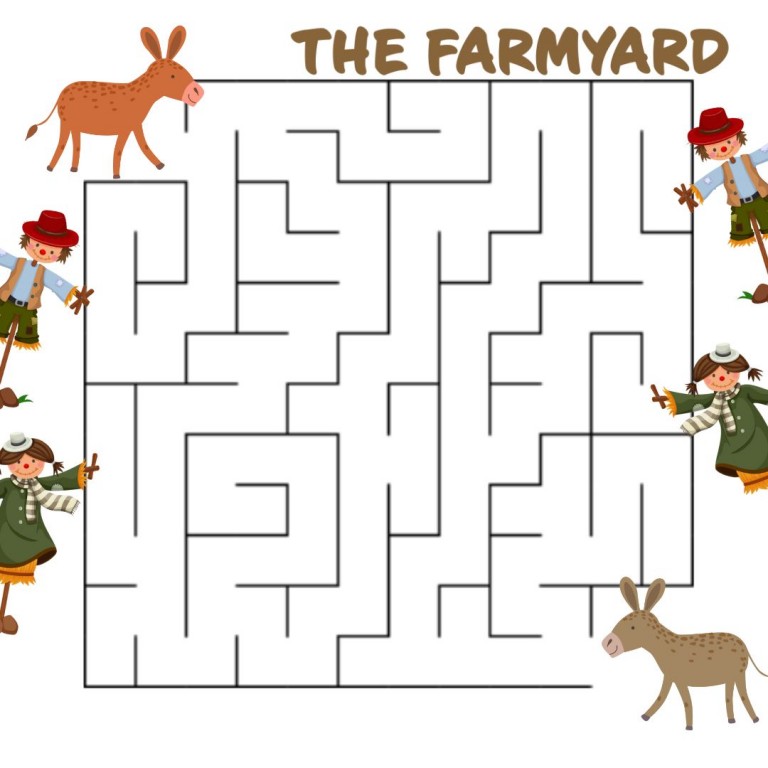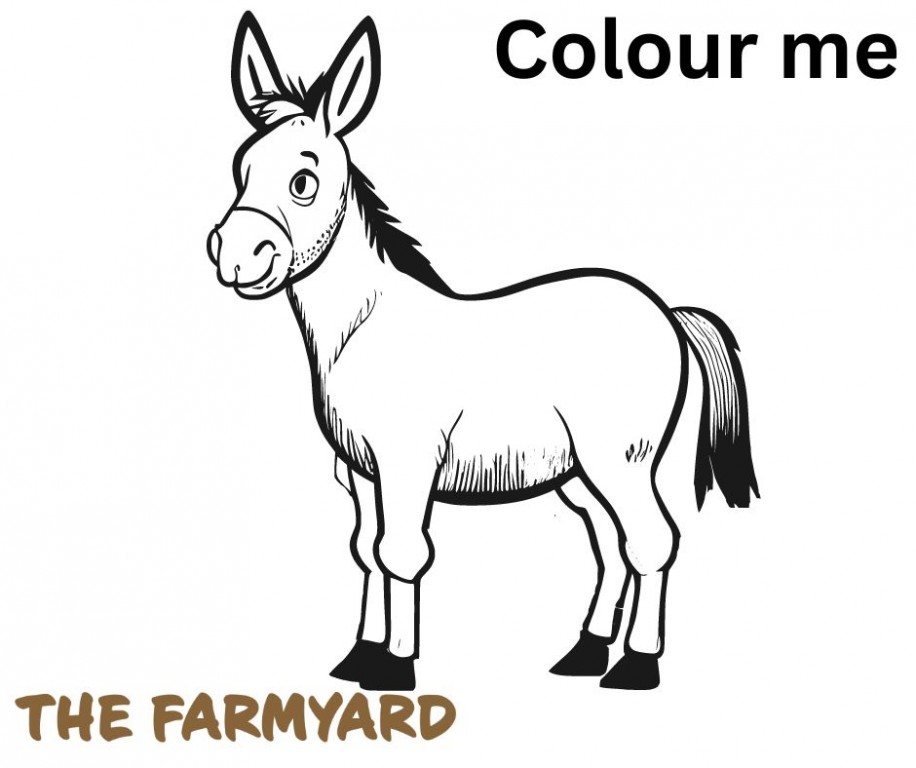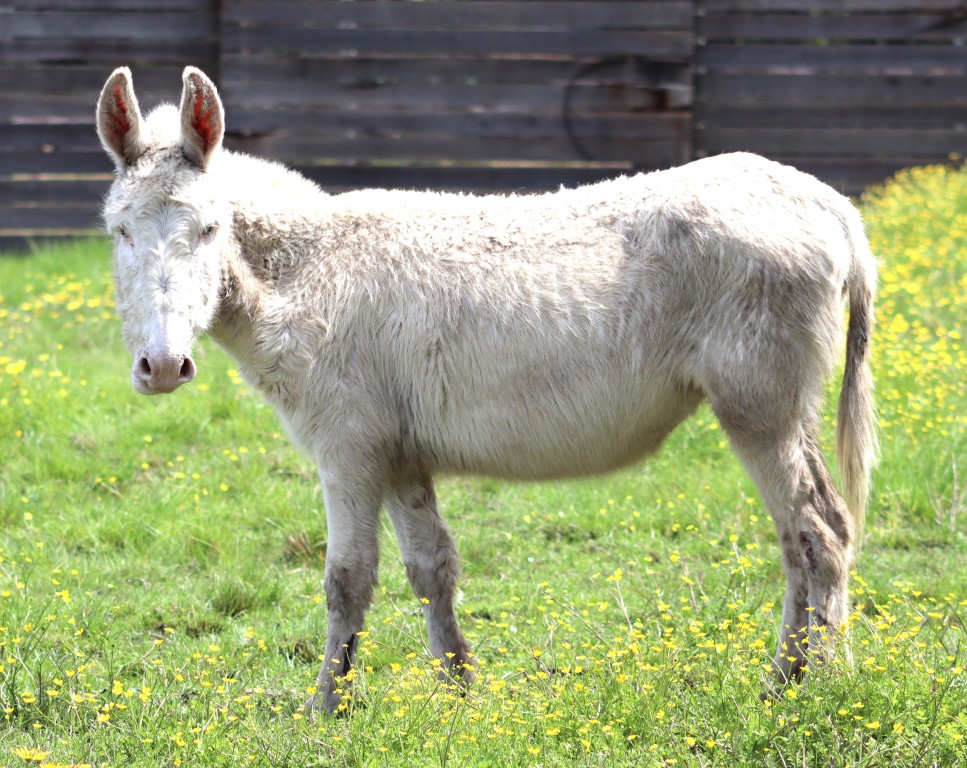Donkeys are known for their excellent memory. They can remember places they’ve been to and other donkeys they’ve met up to 25 years ago. This cognitive ability helps them navigate complex environments and recall the location of water sources and shelter over vast distances.
Donkeys are often perceived as stubborn, but this behavior is actually a sign of their intelligence. Unlike horses, which may run from danger impulsively, donkeys are more likely to stop, assess the situation, and respond in a way that maximizes their safety. Their cautious nature is a survival strategy in the wild.
Donkeys are highly social animals with a strong sense of herd loyalty. In the wild, they form close-knit groups and depend on each other for protection. A lone donkey is likely to become anxious without the presence of other donkeys or familiar animals.
Donkeys are often used as guard animals for livestock, particularly sheep, goats, and even cattle. Their natural wariness of predators like coyotes and wolves makes them effective protectors. Donkeys are known to chase or even stomp on intruders in defense of their herd.
Some donkeys, particularly those of Christian folklore, are believed to have a cross-shaped marking on their backs. This marking is most visible on the Nubian breed, and the pattern runs down the donkey's spine with a perpendicular stripe across its shoulders.
Donkeys have evolved to survive in arid environments, which means they can go long periods without drinking water. In hot, dry climates, they can lose up to 30% of their body weight through dehydration and still rehydrate quickly once water becomes available.
Unlike horses, donkeys are less prone to conditions like laminitis (a painful inflammation in the hooves) because their feet are adapted to rough, dry terrains. Their hooves are more robust, and they don’t require as frequent shoeing or trimming as horses.
Donkeys can mate with other equines, resulting in hybrid offspring. A male donkey (jack) mating with a female horse produces a mule, while a male horse mating with a female donkey (jenny) produces a hinny. These hybrids inherit traits from both parents but are generally sterile.
Donkeys make a distinctive "bray" sound, which is unique to them and differs from a horse's neigh. Their bray can be heard over long distances, sometimes up to 3 kilometers (1.8 miles). This is particularly useful in the wild or open landscapes where donkeys need to communicate with one another over vast expanses.
Donkeys are surprisingly strong and can carry heavy loads relative to their size. A healthy donkey can carry up to 20-25% of its body weight for long distances, which is why they have been used as pack animals for centuries, especially in mountainous and desert regions.
Donkeys have a higher tolerance for certain illnesses compared to horses. For instance, they are less prone to colic, a common gastrointestinal issue in horses. Their immune system also helps them survive in harsher environments where other livestock might struggle.
Like some primates, dolphins, and elephants, donkeys have shown the ability to recognize their own reflection in a mirror, which is an indicator of higher self-awareness and intelligence.
Donkeys form deep emotional bonds with their companions, whether they are other donkeys, humans, or even animals like horses or goats. They can show signs of distress or depression when separated from a companion they are attached to.
Donkeys are extremely efficient at digesting roughage and can survive on poorer quality food than many other animals. Their digestive system is capable of extracting nutrients from tough, fibrous plant material, making them well-suited to environments where food is scarce.
These facts reveal donkeys to be intelligent, hardy, and socially complex animals, often underappreciated for their contributions and unique characteristics.
Donkeys feature in a variety of entertaining and insightful fables. Here are a few notable ones:
-
The Donkey and the Grasshopper: In this fable, a donkey and a grasshopper argue about who is more important. The grasshopper boasts about its musical talent and agility, while the donkey highlights its strength and endurance. In the end, they realize that each has unique contributions to make. This story emphasizes the value of different skills and the importance of appreciating diverse talents.
-
The Donkey in the Lion’s Skin: This classic fable tells of a donkey who finds a lion’s skin and decides to wear it to scare other animals. While disguised, the donkey frightens various creatures until it tries to bray, and the animals quickly recognize the true identity. The fable illustrates that no matter how one tries to disguise themselves, their true nature will eventually reveal itself. It also warns against pretending to be something one is not.
-
The Donkey and the Load of Salt: In this tale, a donkey carrying a load of salt falls into a river. When it emerges, the salt has dissolved, making the load lighter. The donkey realizes this and decides to fall into the river deliberately to lighten its load. The next time, it carries a load of sponges, which become heavier when wet. This fable is a humorous take on cleverness and the consequences of attempting to exploit a situation.
-
The Donkey and the Farmer: In this fable, a hardworking donkey is tasked with carrying heavy loads for a farmer. Despite the heavy burden, the donkey faithfully performs its duties. One day, the farmer decides to reward the donkey with a lighter load and better food. The donkey, understanding the farmer's kindness, becomes even more loyal and hardworking. The story highlights the value of recognizing and rewarding hard work and loyalty.
-
The Donkey and the Wolf: In this story, a donkey and a wolf are captured and are being led to be sold. The donkey, afraid, starts making noise to draw attention. The wolf, however, remains quiet and pounces on their captors, freeing them both. The donkey is amazed by the wolf’s bravery and realizes that sometimes silence and stealth are more effective than noise. The fable illustrates the importance of choosing the right approach to problem-solving.
These fables use donkeys to explore themes of self-awareness, cleverness, and the value of different traits. Through these engaging stories, donkeys become symbols of persistence, resourcefulness, and the importance of true character.





